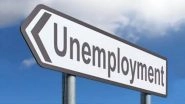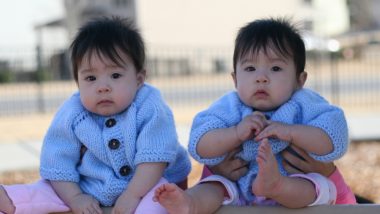If you grew up watching Judwaa and Seeta Aur Geeta you probably harboured secret desires to have twin babies. While twins look adorable, they are rare. And sadly enough, the frequency of multiple births are decreasing. Well, on average, about 1.6 percent of pregnancies result in twins. So the odds aren’t exactly with you. Or are they? Turns out, that several factors can affect your odds of getting pregnant with multiples and having twin babies. Let us asses your chances.
1 Do You Have Doubles In Your Family Tree?
Look at your family tree. If there were a few 'twos', you could be adding two more. However, you have a higher chance of having twins only if there is a history of fraternal twins on the mother's side. Your chances of having twins are still elevated but not as high if there are only identical twins in your lineage.
2 Are you 35 and above?
While it's true that your chances of you getting pregnant are higher when you are in your twenties, you might just have to wait till you are 35 to have twin babies. The older you are, the more likely you are to have twins. This is because when you are 35 or older, you produce more follicle-stimulating hormone (FSH), which is what causes the egg to mature each cycle. That extra FHS may actually cause you to release more than one egg in a single cycle. Planning for a Baby? Here’s How You Can Plan a Healthy Pregnancy.
3 Are You Considering Fertility Treatments?
While it is very uncommon for twins or triplets to happen naturally, fertility treatments can sometimes increase the chances of having doubles where more than one embryo is placed inside the mother's uterus. Fertility drugs typically work by increasing the number of eggs that your ovaries produce. If you take the in-vitro fertilisation route, your chances of having doubles depend on how many eggs are being implanted. How To Get Pregnant: 7 Things That Will Help You Conceive Faster.
4 Are You Tall?
Now, this is not going to make the 'down to earth' women happy. A study published in The Journal of Reproductive Medicine concluded that if you are tall, you are more likely to have twins. One theory behind it is that taller women have more insulin-like growth factor (IGF), which increases the sensitivity of the ovaries to FHS and results in them potentially releasing more than one egg each cycle. Besides, taller women also have an easier time carrying twins.
5 Are You Already a Mother?
You may be in luck if you are planning baby number two or three. Several studies have found that having one or more previous pregnancies increases your chances of having doubles.
So we have armed you with the stats. If you fancy it, take your chance and see whether you are one of the 16 in every thousand to strike double and get twins.
(The above story first appeared on LatestLY on Aug 01, 2019 02:18 PM IST. For more news and updates on politics, world, sports, entertainment and lifestyle, log on to our website latestly.com).













 Quickly
Quickly


